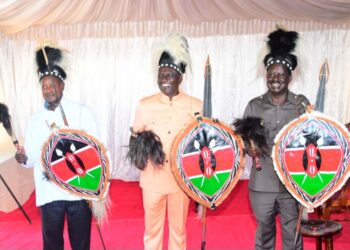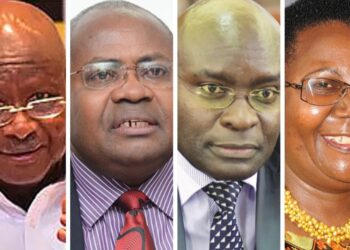The Leader of Opposition, Joel Ssenyonyi, has raised concerns about the potential fragmentation of the opposition in Parliament if a proposed bill allowing MPs to elect their leader is passed.
While giving his views before the Legal & Parliamentary Affairs Committee, on the Administration of Parliament Amendment Bill, 2024, recently tabled by Mityana South MP, Richard Lumu, Ssenyonyi warned that the spirit of the bill is intended to tear down the unity among the opposition lawmakers.
Lumu’s bill seeks to introduce elections for the Leader of the Opposition (LoP) by opposition MPs, replacing the current system where the political party with the highest number of members in the August House appoints the leader of the Opposition. According to Ssenyonyi, this change could create unhealthy competition and divisions within the opposition.
“Election of the leaders on the opposition side of Parliament by members would make the opposition prone to fragmentation,” Ssenyonyi warned. “When opposition members in Parliament are forced to compete for leadership positions, it can lead to divisions and weaken their collective ability to unite and hold the ruling Government accountable. A fragmented opposition is less effective in presenting a united front, which is crucial for influencing legislative outcomes.”
Ssenyonyi argued that the current arrangement, where opposition leadership is determined by political parties, mirrors how the Leader of Government Business is chosen. “The Leader of Government business is not elected by MPs on the Government side, so why would we be seeking to have the leader on one side elected?” he asked.
In his argument, Ssenyonyi also highlighted the importance of allowing the Leader of Opposition to appoint a Shadow Cabinet, which functions as a replica of the government’s Cabinet. “The Shadow Cabinet is intended to hold accountable the substantive cabinet ministers,” he said, emphasizing the importance of allowing the LoP to choose a team they are comfortable working with.
Ssenyonyi questioned why the opposition would need to alter this practice when the ruling party follows a similar approach for government leadership roles. “If the Government cabinet ministers are not determined by all MPs on the Government side, why then is it necessary for the Shadow Cabinet to be determined by all opposition MPs?” he asked.
He further pointed out that opposition-led accountability committees are effective due to their structure, which allows for a streamlined leadership appointment process. “The appointment of chairpersons and deputy chairpersons of accountability committees has been a prerogative of the Opposition leadership in Parliament,” he said. “Why would Lumu want these vetted by MPs in the Opposition, yet the same isn’t happening with the NRM side?”
In response, Stephen Baka, the Chairperson of the Legal Committee, clarified that Lumu’s proposal would not take effect until the 12th Parliament in 2026, potentially alleviating concerns that it was targeting Ssenyonyi’s current leadership. “The mover while talking to us indicated that he would want this Bill to start in the next term,” Baka noted.
However, Ssenyonyi remained sceptical, stating that while the bill may not target him personally, it could weaken future occupants of the office. “Tomorrow it may not be me occupying this office, but we mustn’t emasculate whoever the occupant of the office is.”
Meanwhile, the debate surrounding the bill continues, with opposition parties largely disregarding the proposed amendment, claiming it is unnecessary and could destabilize the opposition bloc.
Do you have a story in your community or an opinion to share with us: Email us at editorial@watchdoguganda.com













